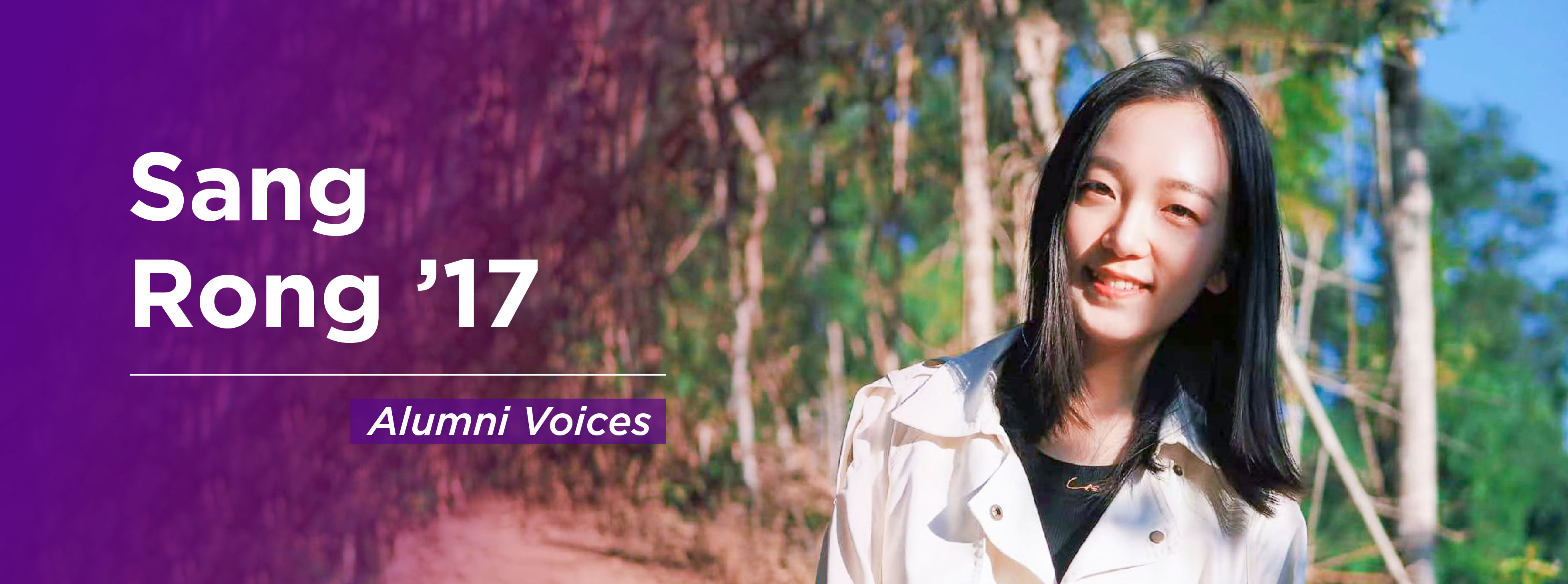
Sang Rong ’17, Researcher at Yale University School of Medicine
Hometown: Anhui, China
Major: Business and Finance, Minor: IMA
After completing her undergraduate degree at NYU Shanghai, Sang Rong ’17 spent three years working in China before deciding to further her education. She pursued a Master of Arts in Instructional Technology and Media at Columbia University between 2020 and 2022, and then worked on a series of collaborative projects aimed at improving the dental health of low-income families and individuals with intellectual developmental disabilities in New York State. Since mid-2023, She joined the Yale team for Pediatric Pandemic Network, a nation-wide, federally-funded organization in the U.S. that “aims to empower health care systems and communities to provide high-quality, equitable care to children every day and in crises.”
Healthcare and elderly care systems are under tremendous pressure nowadays. This is a problem particularly severe in countries with rapidly expanding aging populations and/or societies without good universal healthcare. Rong hopes to use human-centered design and explore ways to combine community and corporate forces in service of improving the equity and efficiency of healthcare systems. The ultimate goal is to help more people live with good health and dignity.
Why did you choose Business and Finance for your major?
My decision was greatly influenced by a course I took on business innovation. This course was a deep dive into teamwork and creative problem-solving. We collaboratively explored innovative strategies to address consumer needs and tackled tangible business challenges in the contact lenses industry.
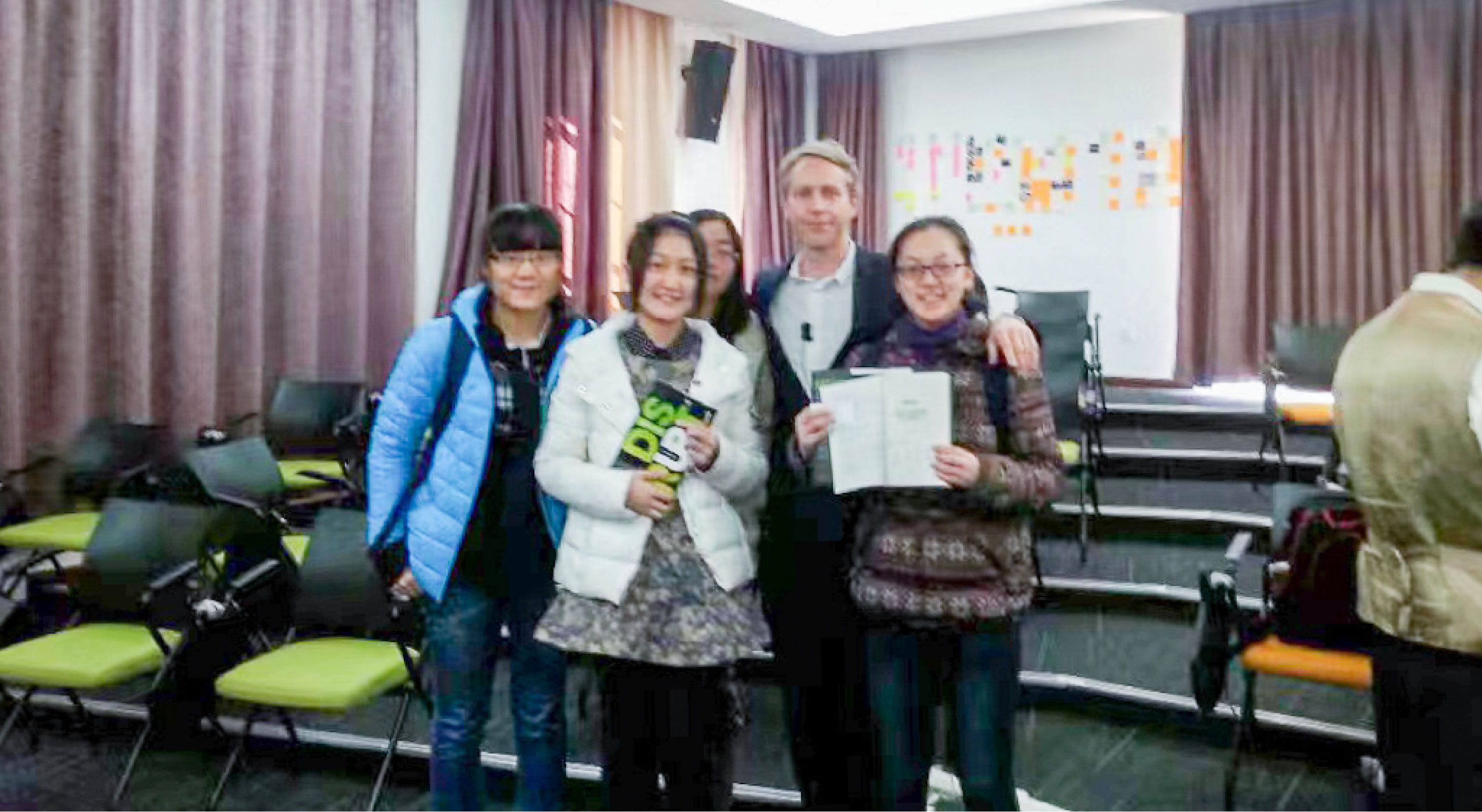
Sang Rong (first from right) with Professor Luke Williams and team members
This experience was a revelation for me, showcasing how innovative thinking can effectively resolve real-world business issues. Opting for a major in Business and Finance was to develop my ability to apply theoretical knowledge and skills in practical settings, aiming to enhance the efficiency of resource allocation in any business context.
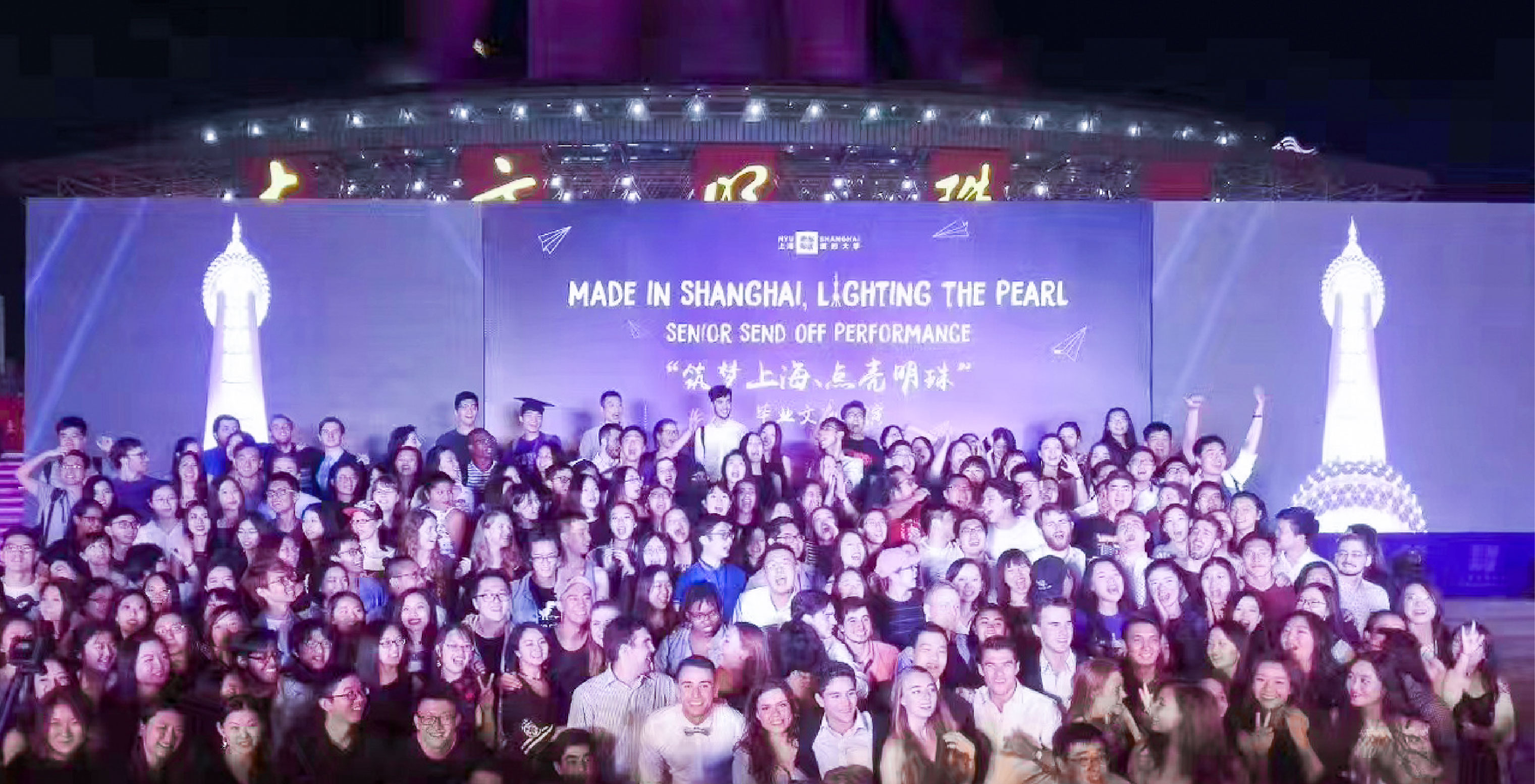
Group photo of Class of 2017 in front of the Oriental Pearl Tower
This experience was instrumental in my relatively smooth transition from school to the professional world. I initially joined GroupM as a management trainee, where I spent two years developing media strategies for clients including L'Oreal, JD.com, and Yili Group, leveraging consumer insights and media data analysis. Following this, I moved to an educational technology company as a data product manager, where I delved into the intersection of user research, media, and education.
My career journey has allowed me to observe firsthand the profound impact of technology, like Big Data and AI, on various sectors including advertising and education. Yet, technology can be part of the solution, and it can also be part of the problem in today’s world. To create and to use technologies in ways that help build a more just and livable future for all, I think thoughtful and careful approaches are urgently needed. One important part of this collective endeavor is, and will always be, building deep empathy with other human beings.
Where does your interest in education stem from?
Growing up in a family of very dedicated teachers was certainly an important factor. But I think more important was my volunteer experience during college years. During my freshman year, I volunteered for PEER, a non-profit organization dedicated to promoting educational equity in less developed areas of China. Inspired by this experience, in my sophomore year, I founded PEER Pal club at NYU Shanghai. This initiative, led by students, focused on developing and implementing innovative educational interventions for rural and semi-rural high school students in several Chinese counties.
As part of the volunteer experience, I was able to visit Danzhai, in Guizhou Province, where I guided local students in exploring and documenting traditional paper-making practices in their community. There were also other project-based learning programs that I helped design and lead for high school students in Hunan Province. A particularly memorable experience for some high school students entailed learning about the technology used in the Interactive Media Arts (IMA) program at NYU Shanghai. Another important aspect of my volunteer work was training volunteers, which enabled me to learn how to “train the trainers” in an educational setting.
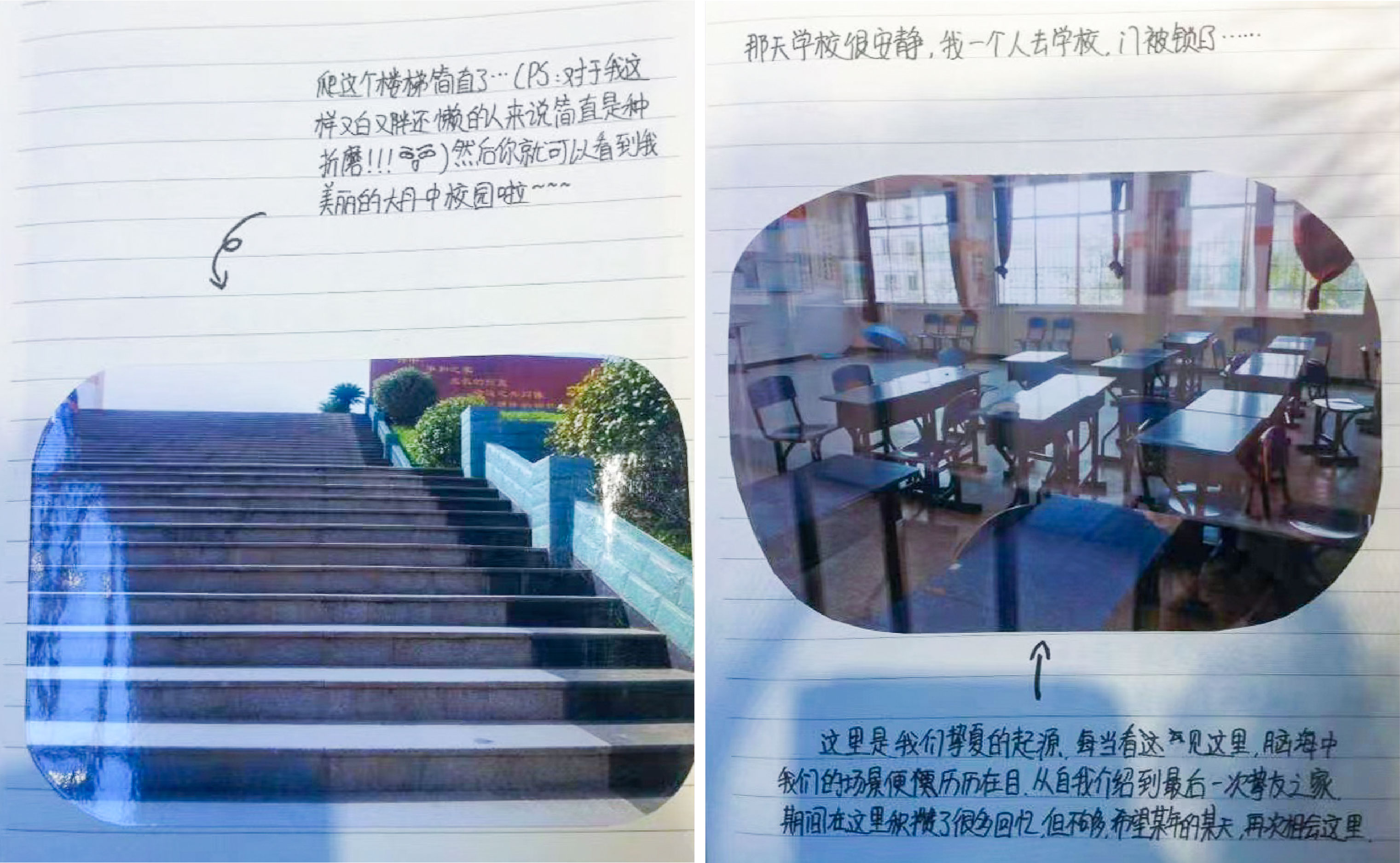
A scrapbook sent to Sang Rong by students in Danzhai, Guizhou Province
The decision to pursue a master’s degree in educational technology at Columbia University was in some ways an extension of these and other college experiences, through which I learnt the importance of human-centered approaches in solving complex problems, including those that required innovative digital methods.
What inspired you to enter into the healthcare sector?
During the first year of my master’s degree, I studied remotely in China due to the Covid-19 pandemic. When my grandparents were hospitalized, I went to the hospital frequently to take care of them and saw the hard work of physicians and nurses. I realized that unnecessary tension between patients and physicians or nurses could be triggered by many factors, including of course the scarcity of overall medical resources. The attention a physician or nurse can give to each patient is often very limited.
For my MA project, I designed a prototype for a personalized mobile application, centering the needs of patients and their caregivers. Grounded in principles of patient empowerment, patient-centered care, and behavior change models, this application offers education and care support. It aims to help patients gain knowledge and acquire self-management skills, enabling them to actively engage in treatment, thereby lessening the workload on physicians and nurses. The overarching goal of this design is to improve life qualities.
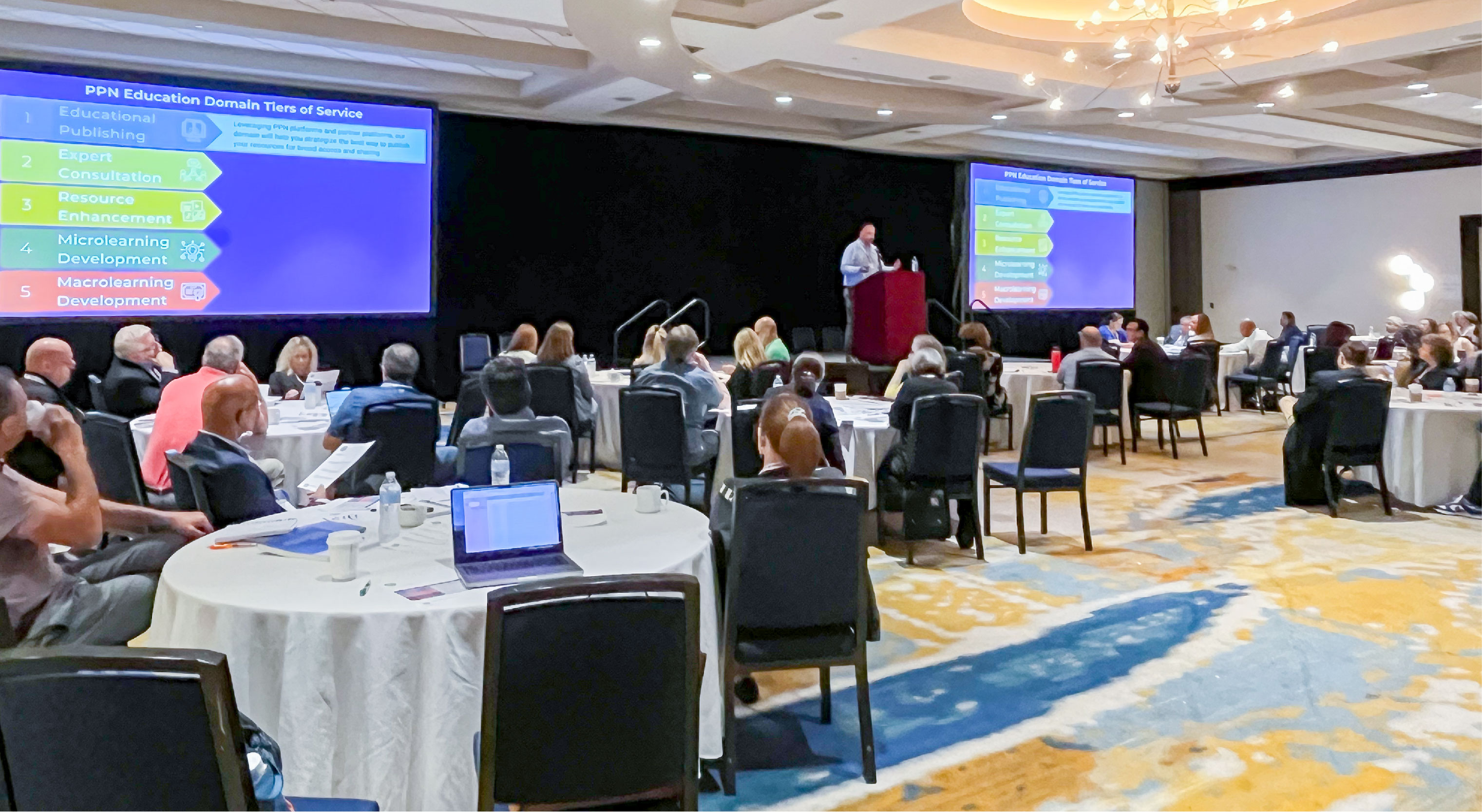
Pediatric Pandemic Network’s annual conference.
At Yale University School of Medicine, I am involved in a dynamic team working on a range of innovative projects. Together with my colleagues, we are delving into both quantitative and qualitative research. Our goal is to gain a deeper understanding of the needs of healthcare providers and patients within the healthcare landscape. This research is crucial for us to more effectively design effective interventions and services to meet these specific needs. In addition, we have created and distributed Pediatric Disaster Medicine online learning modules to more than 20 children's hospitals across the United States. Our aim is to enhance the accessibility and equity of information and resources. To achieve this, we are harnessing advanced technologies and implementation science to develop engaging content, comprehensive curricula, and user-friendly digital products.
I realized that team members, particularly those without a design background, often prioritize resources or technology in designing digital products. Yet, the primary goal of the application is to solve people’s problems by meeting their needs.
To help medical experts in my team to think more empathetically about the kinds of challenges faced by people of various socioeconomic and ethnic backgrounds, I designed a workshop series for them to “experience” various disaster scenarios through role-playing.
This was particularly helpful for the team to appreciate how our own positionality and perspectives limit the ways we see and think about disaster situations. And being able to constantly reflect upon such limitations is an essential starting point for developing deep empathy with our users, and for designing truly helpful solutions.
Five years after graduation, what stays with you from your NYU Shanghai experience?
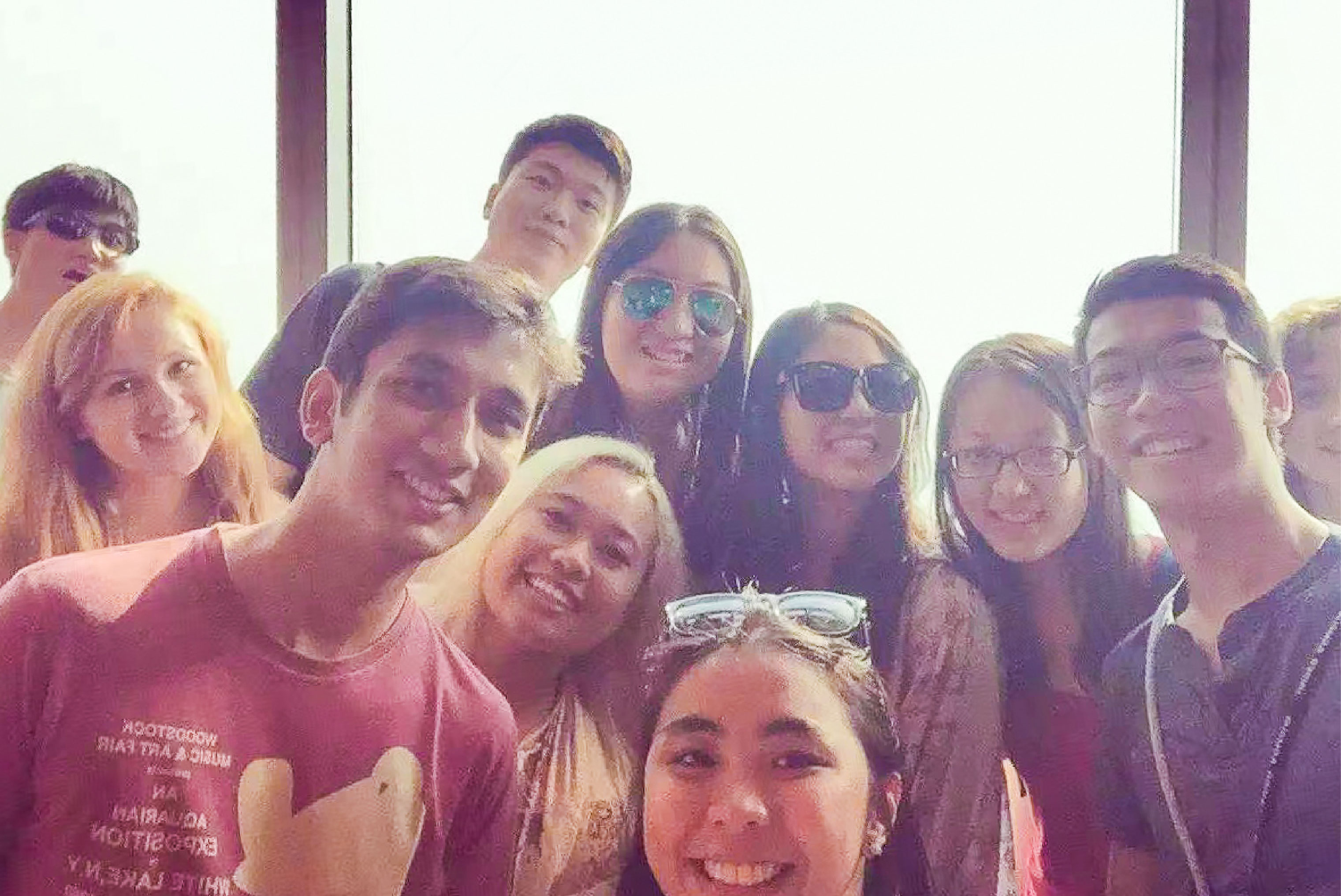
In fall 2015, Sang Rong (second from right) with her classmates in Abu Dhabi.
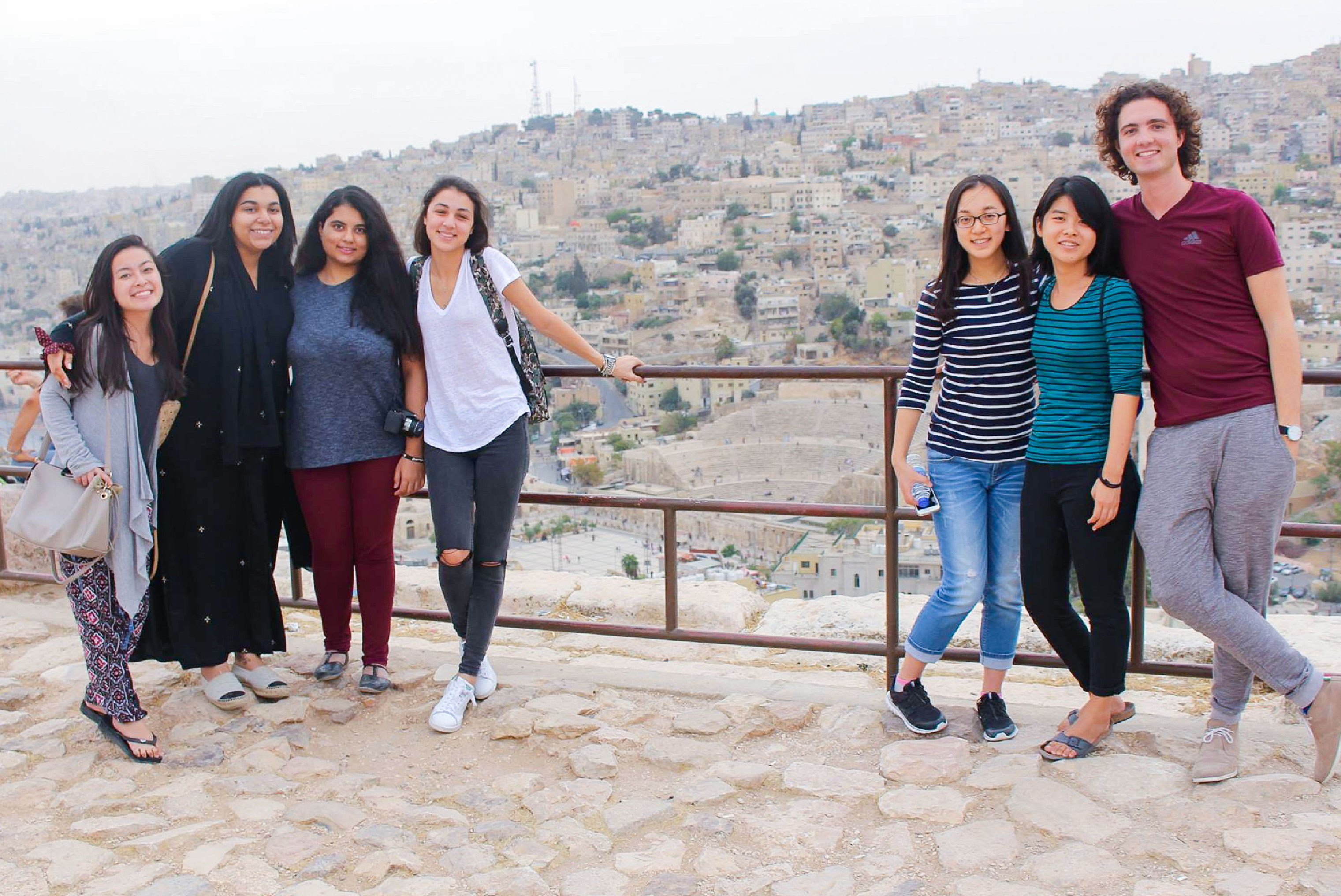
Sang Rong (three from right) and her classmates on a tour of Jordan.
My time at NYU Shanghai opened my eyes to the meanings of diversity. Taking courses like 'Global Perspectives on Society' (GPS) honed my critical thinking skills and nurtured a deep sense of empathy. These skills are invaluable, both in my past endeavors and in all that lies ahead. The university experience broadened my horizons, deepening my appreciation of different cultures and enabling me to adopt a more comprehensive approach when tackling challenges.
For me, the motto 'Make the world your major' is more than just a guiding principle of NYU Shanghai. It will be a lifelong commitment and a way of life. It represents a thoughtful way of living in, engaging with, and caring for this wonderful world.

